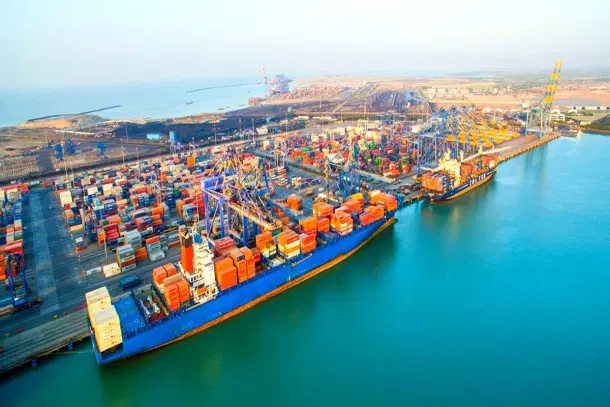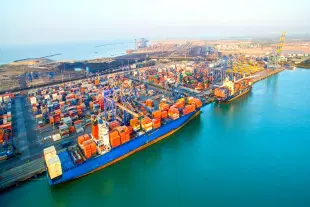News Brief
India Tightens Port Restrictions On Select Jute Imports From Bangladesh
Arjun Brij
Aug 12, 2025, 03:57 PM | Updated 03:56 PM IST
Save & read from anywhere!
Bookmark stories for easy access on any device or the Swarajya app.


Government of India has moved to further tighten restrictions on imports of specific jute products and ropes from Bangladesh, barring their entry through all land ports along the India–Bangladesh border with immediate effect.
A notification issued by the Directorate General of Foreign Trade (DGFT) on Monday clarified that these items will only be permitted via the Nhava Sheva Seaport in Maharashtra.
"Imports from Bangladesh shall not be allowed from any land port on the India-Bangladesh Border," the notification stated, adding, "Import of certain goods from Bangladesh to India is regulated with immediate effect."
The curbs apply to bleached and unbleached woven fabrics of jute or other textile bast fibre, twine, cordage, rope of jute, and sacks and bags made from jute.
This latest move builds on similar trade restrictions implemented earlier. On 27 June, New Delhi prohibited imports of various jute products and woven fabrics from Bangladesh through land routes, allowing them solely via Nhava Sheva.
Previous measures in April and May targeted other Bangladeshi exports, including ready-made garments, processed food, and several categories of jute and flax products.
The curbs come against a backdrop of increasingly strained bilateral relations. Tensions flared after controversial remarks by Bangladesh’s interim leader Muhammad Yunus during a visit to China, which drew strong reactions from New Delhi and political leaders across party lines.
Bangladesh is a significant competitor to India in the textile sector, and the two-way trade was valued at USD 12.9 billion in 2023–24.
Observers note that the tightening of import channels for specific jute goods may have both political and economic ramifications, impacting cross-border trade flows and supply chains.
Arjun Brij is an Editorial Associate at Swarajya. He tweets at @arjun_brij





